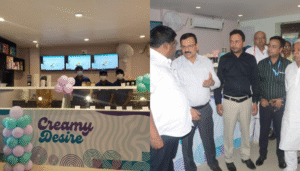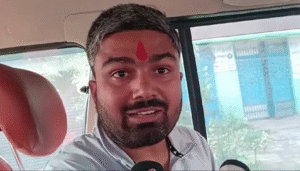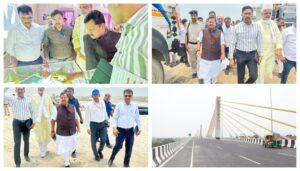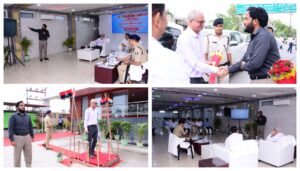From Dust to Action: PatnaPress Webinar Explores Bihar’s Air Pollution Crisis
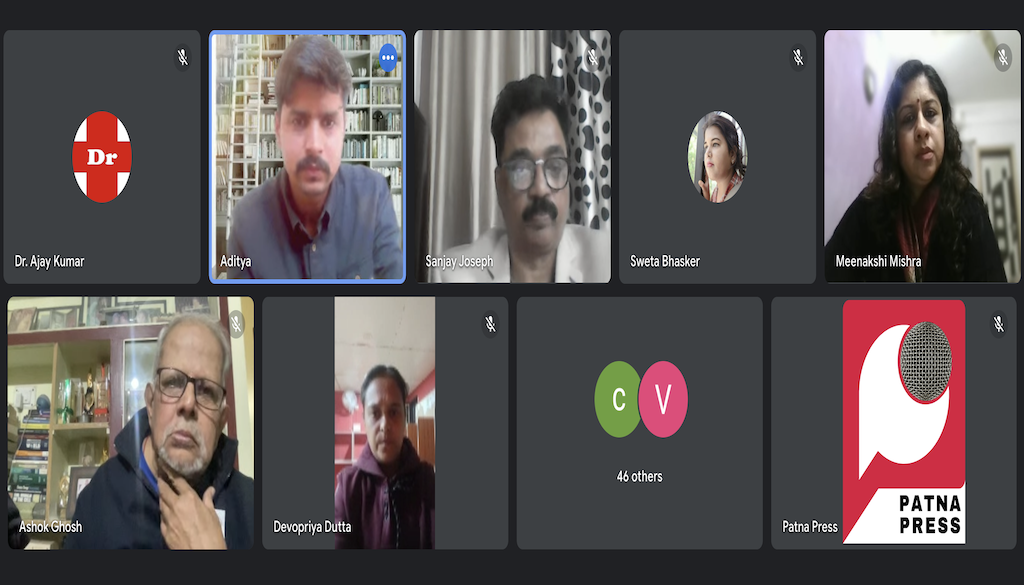
Patna: Bihar’s air pollution crisis has once again taken centre stage this winter, with experts and civic leaders emphasizing the urgent need for collective action during a webinar organized by PatnaPress on Sunday. The event, titled “Choking on Winter Smog: Tackling Bihar’s Air Pollution Crisis,” brought together a panel of environmentalists, health professionals, and civic authorities to discuss the causes, consequences, and potential solutions to this pressing issue.
A Seasonal Smog Emergency
 Dr. Ashok Ghosh, a prominent researcher and former chairman of the Bihar State Pollution Control Board, highlighted the seasonal resurgence of poor air quality. He noted that while industrial pollution and stubble burning are not significant contributors within Bihar, emissions from neighboring states have a spillover effect, exacerbating the crisis. Bihar’s unique geographical composition—characterized by alluvial soil along the Ganga and hard rock soil in Jharkhand—further intensifies dust pollution, he explained.
Dr. Ashok Ghosh, a prominent researcher and former chairman of the Bihar State Pollution Control Board, highlighted the seasonal resurgence of poor air quality. He noted that while industrial pollution and stubble burning are not significant contributors within Bihar, emissions from neighboring states have a spillover effect, exacerbating the crisis. Bihar’s unique geographical composition—characterized by alluvial soil along the Ganga and hard rock soil in Jharkhand—further intensifies dust pollution, he explained.
“Only roads in posh areas of Patna, such as Boring Road and Bailey Road are sprinkled with water to curb dust, leaving majority of the city untouched. Moreover, air quality monitoring covers just 30% of the capital, leaving large swathes untracked,” Dr. Ghosh stated. He emphasized the importance of enforcing existing environmental laws, which are often ignored, and called for a dual approach: reducing pollution at the source and fostering behavioral change.
Health Implications of Toxic Air
 The impact of air pollution on human health was underscored by Dr. Ajay Kumar, Chairman of the Action Committee, Indian Medical Association, Bihar. He explained how air pollution affects physical, mental, and social well-being. “Respiratory diseases, cardiovascular conditions, and even cognitive impairments are on the rise,” Dr. Kumar said, adding that childhood exposure to pollutants has long-term consequences such as stunted growth and impaired lung development.
The impact of air pollution on human health was underscored by Dr. Ajay Kumar, Chairman of the Action Committee, Indian Medical Association, Bihar. He explained how air pollution affects physical, mental, and social well-being. “Respiratory diseases, cardiovascular conditions, and even cognitive impairments are on the rise,” Dr. Kumar said, adding that childhood exposure to pollutants has long-term consequences such as stunted growth and impaired lung development.
Mental health, too, bears the brunt of poor air quality, with anxiety, depression, and dementia becoming increasingly prevalent in polluted areas. Dr. Kumar expressed concern over the rapid urbanization and unchecked development that have worsened Patna’s air quality.
Civic Action and Urban Greenery
 Addressing the civic response, Sweta Bhaskar, Public Relations Officer at Patna Municipal Corporation, outlined the steps being taken to mitigate pollution. She noted that 12 anti-smog guns, 19 mechanical sweeping machines, and 14 water sprinklers are in operation to reduce dust on city roads. The PMC has also initiated a plantation drive, planting 7,500 saplings across 75 wards, including areas under flyovers.
Addressing the civic response, Sweta Bhaskar, Public Relations Officer at Patna Municipal Corporation, outlined the steps being taken to mitigate pollution. She noted that 12 anti-smog guns, 19 mechanical sweeping machines, and 14 water sprinklers are in operation to reduce dust on city roads. The PMC has also initiated a plantation drive, planting 7,500 saplings across 75 wards, including areas under flyovers.
“We have also set up a toll-free helpline (155 304) to address air pollution-related complaints, ensuring resolution within 24 hours,” she added. Bhaskar called for greater public participation, stating, “If pollution is rising, we all have a role to play.”
Geographical and Climatic Challenges
 Meenakshi Mishra, Assistant Professor, Geography Department at Patna Women’s College, delved into the geographical and anthropogenic factors contributing to the crisis. She highlighted how the soft alluvial soil in Patna leads to increased dust generation during construction activities. Additionally, vehicular emissions, unregulated traffic, and the burning of biomass and waste further exacerbate air pollution.
Meenakshi Mishra, Assistant Professor, Geography Department at Patna Women’s College, delved into the geographical and anthropogenic factors contributing to the crisis. She highlighted how the soft alluvial soil in Patna leads to increased dust generation during construction activities. Additionally, vehicular emissions, unregulated traffic, and the burning of biomass and waste further exacerbate air pollution.
Mishra pointed out that winter conditions, including temperature inversion, trap pollutants close to the ground, worsening smog. “Enforcing stringent emission standards for industries, vehicles, and construction is essential,” she said, emphasizing the need for eco-friendly transport and public awareness campaigns.
Community and Educational Initiatives
 Devopriya Dutta, UN Youth Representative at TaruMitra, voiced concerns over the dwindling green spaces in Patna. She praised initiatives such as vertical gardens and the promotion of terrace and community kitchen gardens, while stressing the importance of individual responsibility. “Educational institutions can play a pivotal role in fostering environmental awareness and driving change,” Dutta said.
Devopriya Dutta, UN Youth Representative at TaruMitra, voiced concerns over the dwindling green spaces in Patna. She praised initiatives such as vertical gardens and the promotion of terrace and community kitchen gardens, while stressing the importance of individual responsibility. “Educational institutions can play a pivotal role in fostering environmental awareness and driving change,” Dutta said.
 Echoing similar sentiments, Sanjay Joseph, Vice-Principal of St. Karen’s High School, emphasized the role of education in combating pollution. He advocated for lifestyle changes and awareness among parents to inculcate good habits in children. “Traffic congestion is another major issue that needs immediate attention from authorities to curb vehicular emissions,” he added.
Echoing similar sentiments, Sanjay Joseph, Vice-Principal of St. Karen’s High School, emphasized the role of education in combating pollution. He advocated for lifestyle changes and awareness among parents to inculcate good habits in children. “Traffic congestion is another major issue that needs immediate attention from authorities to curb vehicular emissions,” he added.
As the webinar concluded, the speakers unanimously called for coordinated efforts by the government, communities, and individuals to tackle Bihar’s air pollution crisis. From stricter enforcement of environmental laws to sustainable urban planning and increased public awareness, the message was clear: combating air pollution requires a collective, sustained effort.

